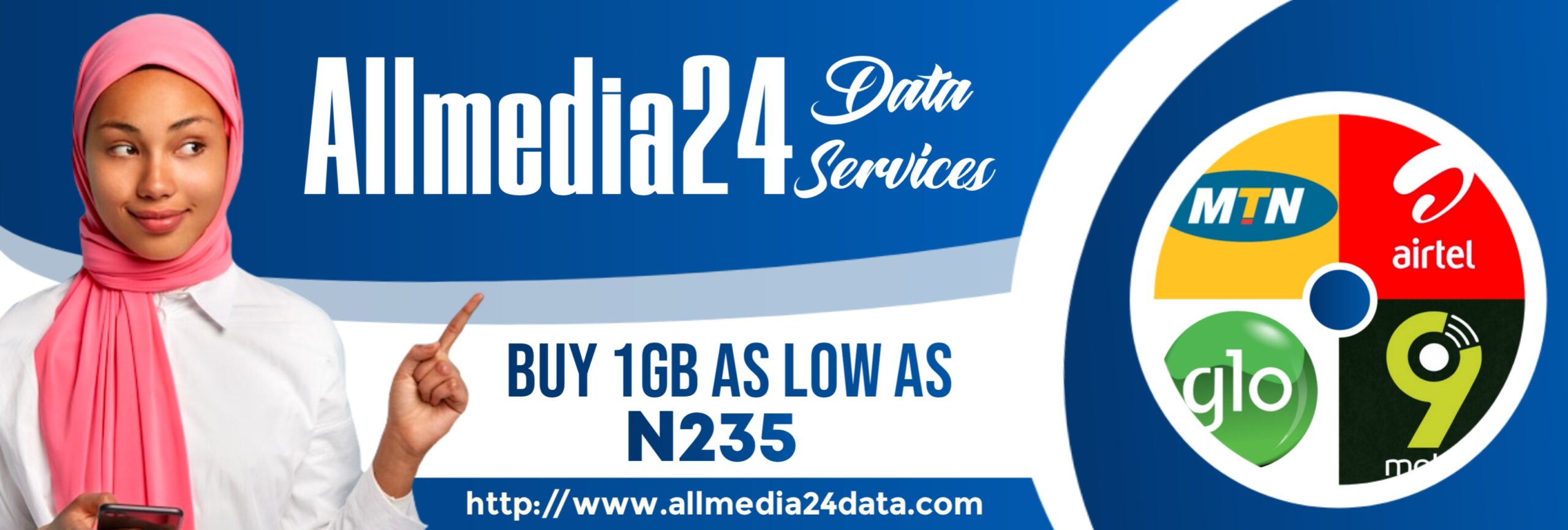
The alarming number of over 2.3 million Nigerian children who have not received any routine immunisation has sparked concern among medical experts and stakeholders, revealing a significant gap in the country’s healthcare system. This worrying situation puts these children at high risk of contracting preventable diseases, potentially leading to severe health complications or even death.
This pressing issue was addressed during the launch of the Zero-Dose Reduction Operational Planning initiative in Lagos on September 25, 2024. The programme, organized in partnership with the National Primary Health Care Development Agency (NPHCDA), the World Health Organisation (WHO), United Nations Children’s Fund (UNICEF), Gavi, and the Lagos State Government, aims to identify and vaccinate children who have never been immunised, otherwise known as zero-dose children.
Our Data Prices On JMData:
- MTN SME 1: N255 per 1GB
- MTN SME 2: N259 per 1GB
- Airtel CG: N278 per 1GB
- Glo CG: N230 per 1GB
- 9mobile: N125 per 1GB
Download Our Mobile APP to get started: [JMData] https://play.google.com/store/apps/details?id=com.encrypted.jmdata
HAVE YOU APPLY FOR NIGERIAN CUSTOMS SERVICE RECRUITMENT? GET NIGERIAN CUSTOMS PASS QUESTIONS AND ANSWER PDF FILE BELOW 👇👇👇👇
DOWNLOAD NIGERIAN CUSTOMS RECRUITMENT APTITUDE TEST 2025 PDF
Contents
The Scale of the Problem
According to the President of the Paediatric Association of Nigeria, Prof. Ekanem Ekure, Nigeria accounts for about 2.2 million of the 4.4 million zero-dose children in West Africa, making it the country with the highest number of zero-dose children globally. Prof. Ekure expressed his concern during the Paediatric Association of Nigeria’s Children’s Art Competition on Immunisation, held to commemorate the 2024 Children’s Day in Lagos.
Despite efforts to promote vaccination, only 23% of Nigerian children were fully immunised in line with the Expanded Programme on Immunisation (EPI) schedule in 2021, highlighting the significant gap in reaching every child with life-saving vaccines. The lack of immunisation, especially in urban slums, conflict zones, and remote communities, underlines the urgent need for more targeted efforts to ensure that all children receive adequate protection against vaccine-preventable diseases.
Why Are So Many Nigerian Children Unimmunised?
Several challenges have been identified as contributing to the high number of unimmunised children in Nigeria:
- Inadequate Health Facilities: Many communities, particularly in remote and rural areas, have limited access to healthcare facilities, making it difficult for parents to immunise their children.
- Long Distances to Healthcare Centers: Parents in remote areas often face the challenge of traveling long distances to access healthcare services, discouraging them from regularly vaccinating their children.
- Insecurity and Conflict: Conflict and insecurity in certain regions hinder the ability of health workers to reach children who need immunisation, especially in areas affected by insurgency.
- Migration and Workforce Shortages: Health workers are increasingly overburdened due to migration, leading to an increased workload and reduced capacity to provide routine immunisation services.
- Funding Shortages: Insufficient funding for routine immunisation programmes limits the ability to reach every child, especially in hard-to-reach communities.
- Lack of Awareness and Misinformation: Low levels of awareness about the importance of routine immunisation, coupled with rising misinformation and vaccine hesitancy, have discouraged many parents from getting their children vaccinated.
- Low Community Engagement: Some communities are not adequately engaged or informed about the importance of immunisation, which results in lower vaccination rates.
UNICEF and Partners Take Action
In response to the challenges, UNICEF has pledged to ensure that no child is left behind in Nigeria’s immunisation campaign. The organisation is working closely with the Nigerian government and international partners to procure high-quality vaccines, maintain an efficient cold chain system, and deliver vaccines to even the most marginalised and hard-to-reach children.
Aderonke Akinola-Akinwole, a social and behaviour specialist at UNICEF, emphasized the organisation’s commitment to tackling vaccine inequity. She highlighted that UNICEF, in collaboration with its partners, is focused on ensuring that vaccines reach every child, regardless of their background, location, or circumstances.
Lagos State’s Upcoming Immunisation Campaign
To address the immunisation gap, Lagos State is set to launch a statewide supplementary immunisation campaign on October 19, 2024. This initiative will integrate vaccines for Measles, Yellow Fever, and the Human Papillomavirus (HPV) while also focusing on routine immunisation, especially for zero-dose children.
Dr. Adetola Akinpelu, the Immunisation Programme Coordinator at the Lagos State Primary Health Care Board, announced that the campaign aims to achieve a vaccination coverage of 95% for Measles and novel Oral Polio Vaccine type 2 (nOPV2), and 80% for Yellow Fever. This campaign offers a “second chance” for children to receive Measles and Yellow Fever vaccinations, as well as the first opportunity for older populations to access Yellow Fever vaccines.
The campaign will deploy 7,109 vaccination teams, who will conduct fixed and house-to-house vaccination efforts across the state’s 20 Local Government Areas. This comprehensive approach is designed to ensure that the campaign reaches every eligible individual, thus bridging the immunisation gap among zero-dose children.
Conclusion
The high number of unimmunised children in Nigeria presents a significant public health challenge, but the Zero-Dose Reduction Operational Planning initiative and the upcoming Lagos State immunisation campaign are steps in the right direction. Addressing barriers such as lack of access to healthcare, misinformation, and insecurity will be crucial to ensuring that every Nigerian child receives the vaccines they need for a healthy future.
These coordinated efforts between government agencies, international partners, and the community will be instrumental in closing the immunisation gap and protecting Nigeria’s children from preventable diseases.
For more detailed insights into why over 2.3 million Nigerian children are not immunised and the ongoing efforts to tackle this issue, read the full article from HealthWise.
JOIN NOW
https://t.me/MidasRWA_bot/app?startapp=ref_5672ba1f-2b27-4c00-884d-27c057e065ac
Google News Channel
Follow us on Google News for Latest Headlines
Join Our WhatsApp, Facebook, or Telegram Group For More News, Click This Link Below;
WhatsApp Channel
https://whatsapp.com/channel/0029VaELqhlHVvTXjDnUf80h
WhatsApp Group
https://chat.whatsapp.com/ICf5K97TqHpHYvwK9Znt3S
Facebook Page
https://facebook.com/allmedia24news
Our Twitter Page
https://www.twitter.com/mubcrypto
Telegram Group
https://www.threads.net/@allmedia24news
Discover more from Allmedia24 News
Subscribe to get the latest posts sent to your email.



